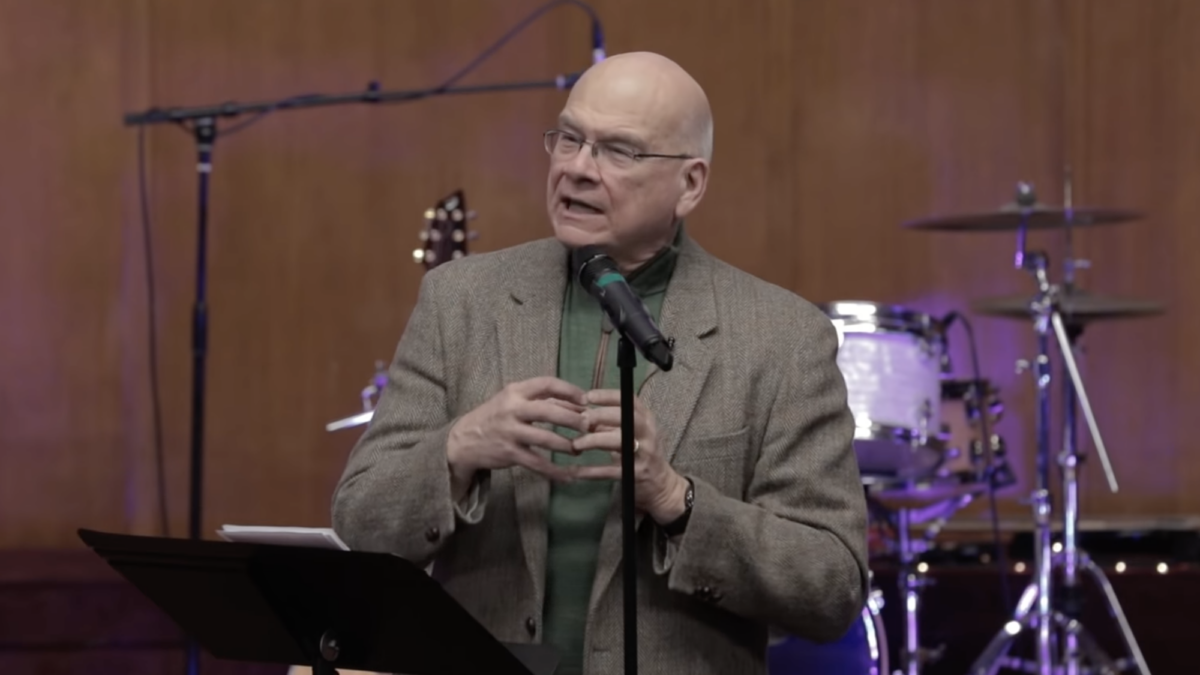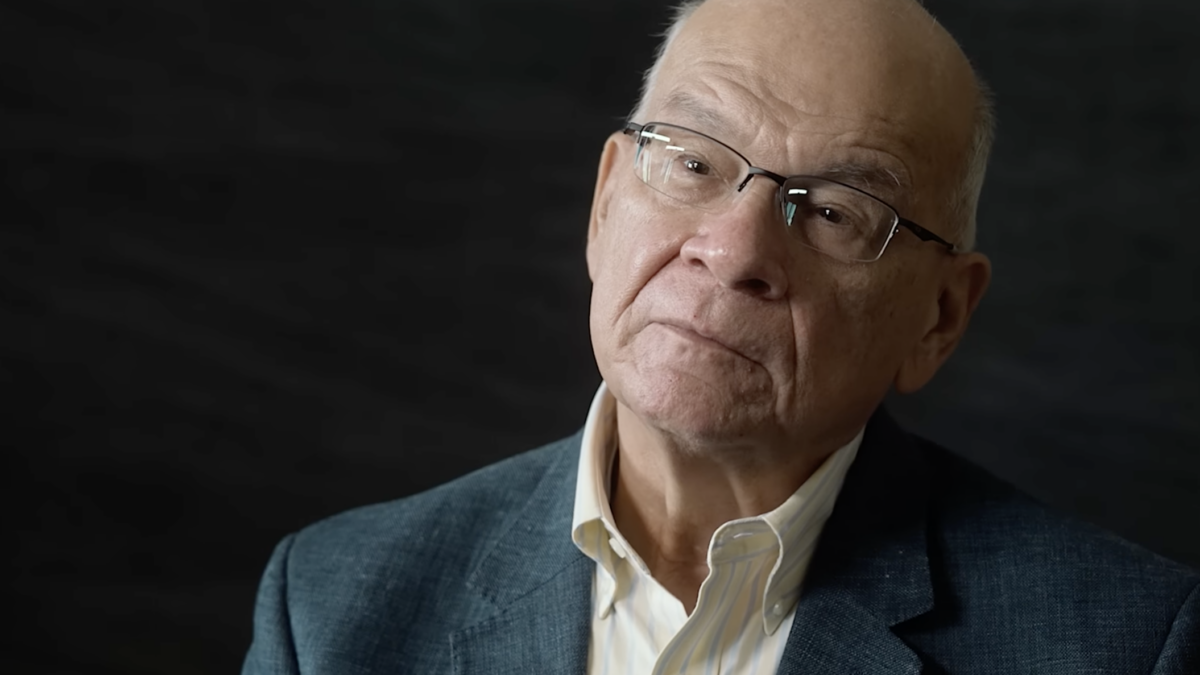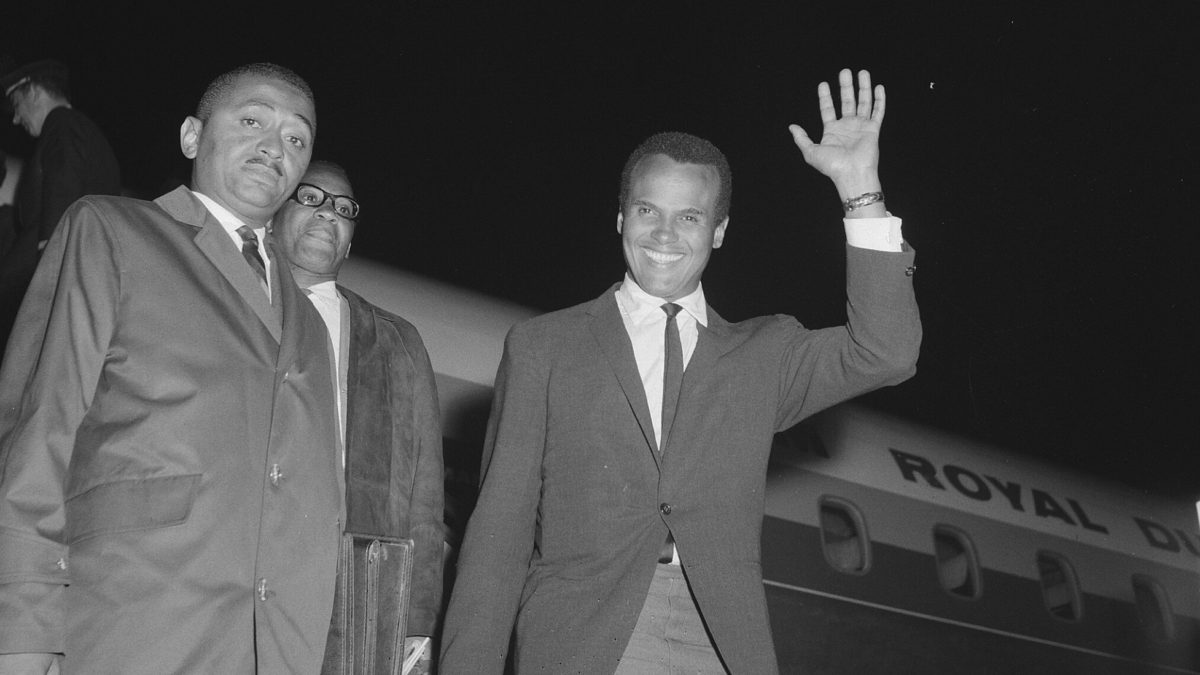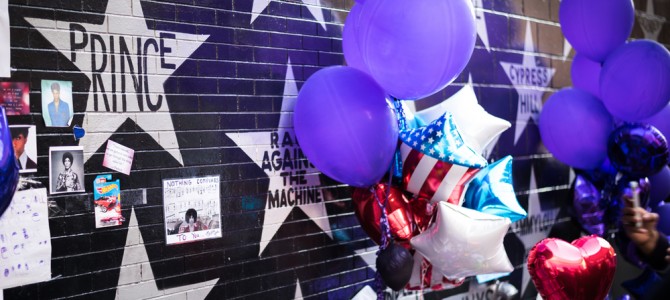
We are only one-third of the way through 2016, and the year has already stockpiled celebrity deaths in alarming fashion. Not just the number, but the stature of those lost—including David Bowie, Prince, Merle Haggard, and Glen Frey—in quick succession has been jarring. This star-mageddon has cemented that social media has altered our reaction to these passings.
Those who weigh in immediately are a mixed bag. We can get intimate remembrances and telling anecdotes from contemporaries and peers of the artistically departed. These blessed moments are warming, as they illuminate unknown segments of an individual’s life, and legitimize feelings of loss and sorrow.
Companies also weigh in with branded memorials. With growing regularity—and commensurate amounts of calamity—the passing of a luminary brings out the corporate mourners. As new social media platforms mushroom, you can always count on corporate entities to arrive late to the party, forever behind the curve as they strain to establish a beachhead on whatever new format potential customers congregate. Once entrenched, we amusedly watch them attempt to plug into whatever is trending.
This extends to the collective wake that takes place as a celebrity is memorialized by the users. Companies just cannot seem to help themselves, and feel the need to inject their solemn words and trademarks into the act of grieving. Occasionally these industrial condolences can be poignant, but just as often they become distasteful mistakes.
Yet, whatever the result, we should question the very appearance of these business entities in these sorrowful moments. Regardless the result, even when they get the tone and sentiments correct, there is still an element of selling something while people are paying tribute.
The Lavender Wave
When Prince was reported to have died on April 21, social media predictably exploded with users who bemoaned the artist’s passing. In short order, the ad-copy divisions from corporate America went to work crafting visual testimonials that would display their sorrow—and their logos. The wealth of cultural material Prince produced and the iconography attached to the artist made for irresistible content. Predictably, violet ruled the movement.
First, there were those pronouncements deemed acceptable. Minnesota sports teams all had honors for the musician in various outlets. The Timberwolves adorned their webpage in purple banners, while The Wild changed its Twitter logo to purple. The Twins posted a touching image of its stadium decked out in tribute.
Fitting that it’s raining in Minneapolis today. pic.twitter.com/s5KFurDhHi— Minnesota Twins (@Twins) April 21, 2016
Chevrolet was mostly cheered for the ad the auto maker took out in national papers referencing Prince’s popular song titled after the Corvette nameplate.

This next curious dichotomy illustrates the razor-fine edge between a business entity delivering the appropriate amount of empathy and a company acting like a drunken mime crashing into the flower display during a wake. Look over two professional tributes to Prince proffered by the promoters of 3M products, and Cheerios:

The similarity in execution is there, but while the 3M offering was warmly embraced as a touching nod, the Cheerios effort was roundly criticized. (The company took down the tweet that same day.) I don’t see the difference. Each company appropriated the singer’s signature color, and both made their brand part of the tribute. More so, the two companies are also Minnesota-based. But why one is acceptable and the other deemed tasteless escapes me.
Other companies joined these two in clearly straining to find a reason to commemorate the death. Hey, Prince sang that one song about rain, correct? Well, that means The Weather Channel and The Weather Network can have their companies added to the mix!
I only wanted to see you laughing in the Purple Rain. #Prince pic.twitter.com/ECR9S2Hcxq— The Weather Channel (@weatherchannel) April 21, 2016
Dictionary.com got in on the act, because Prince totally used words in his songs!

What about NASA? Surely they can find something in space colored purple, right? Totally valid!
A purple nebula, in honor of Prince, who passed away today. https://t.co/7buFWWExMw pic.twitter.com/ONQDwSQwVa— NASA (@NASA) April 21, 2016
Even these tacky attempts to attach to the trending tweets hysteria, tasteless as they were, do not come off as the worst. Following pushback, the makers of the un-drinkable alcohol product Four Loko had to haul down a tweet that announced they were “Pouring one out for Prince.” C’mon, was this really so bad? They were using the proper grape flavor for the occasion. (Yes, it was bad.)

The far more potable Makers Mark bourbon also crudely joined in. On the day of Prince’s passing the distiller segued from its iconic red wax and posted an image of a purple-dipped whiskey bottle.
pic.twitter.com/zytdEy7vfn— Maker's Mark (@MakersMark) April 21, 2016
What may appear as a touching toast was in fact a repurposed image: they had issued these violet wax editions for last fall’s Breeders Cup Tournament. They also managed to besmirch the memory of the departed musician given he was an avowed anti-alcohol activist.
Then you have the makers of Hamburger Helper. Their desperation to get the brand included led to what can be charitably labeled as synergistic creativity. I bet you think there is no possible way to have a pre-packaged ground chuck casserole product affiliated in any manner with an inspired musical talent, but you have no concept how incorrect you are in that stance.
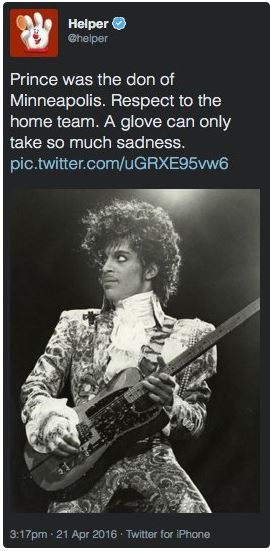
Sure, that was a desperate lurch at validity, but we need to give them credit for showing restraint. I mean, at least they didn’t go so far as to say, “This is what it sounds like when the gloves cry.”
Our New Mournful Frontier
This practice among corporate America is no longer novel, but expected. Bowie’s passing early this year delivered many similar retail responses, and just as many Madison Avenue mea culpas. Companies with zero relationship to the iconic celebrity found ways to get their brand involved in the grief.

Even a corporate interest with a tangible connection to the singer looks somewhat crass, however. Sure, Fender Guitars may make sense in commenting on Bowie’s death.
RIP #DavidBowie. You will be missed. pic.twitter.com/XzUN3qcvjU
— Fender (@Fender) January 11, 2016
Okay, I can see the connection with Bose Amplifiers.
“Tomorrow belongs to those who can hear it coming.” #DavidBowie pic.twitter.com/PZg2LRWjC8— Bose (@Bose) January 11, 2016
The question becomes: Do we need to see this?
Even with “appropriate” participation, these commercial entities insert their branding. You are left with the very palpable reaction that the cultural grieving process involves product placement. Our collective sorrow does not need copyright commemoration along the lines of “This eulogy is brought to you by Yamaha Keyboards.”
The sad truth is we have become inured to business exploitation, and its inevitability is even anticipated. One Twitter user, reacting to the logo-rich memorials to Bowie, made an eerily prescient post that bears more than truth:
if you think the crocs bowie tweet was bad you should see what the social media managers for chevrolet have planned for when prince dies— kevin shark (@fkashark) January 11, 2016
Admittedly, Chevrolet was fairly reserved in its response, but consider how planned it must have been. I believe the automaker tipped its hand in the lyric selected for its honorarium.
Consider, the ad was displayed the day after Prince passed away. That means staff were brought together, graphics created, media space purchased, ad copy delivered, and the spot appeared in journalism outlets in less than 24 hours. “Baby, that was much too fast,” indeed.
Maybe I am looking at this with far more sensitivity than needed. Recall now that for years we had had to address the performer with the title “The Artist Formerly Known As Prince,” due entirely to his insistence that he be addressed by the unpronounceable emblem he had selected as his new moniker. He essentially converted himself into another brand.
Maybe corporate America has a place in mourning after all, given that this performer chose to self-identify with a logo for his name. Commercial artists are already participating in and even deliberately pushing their objectivication. Why would it stop when they die?


